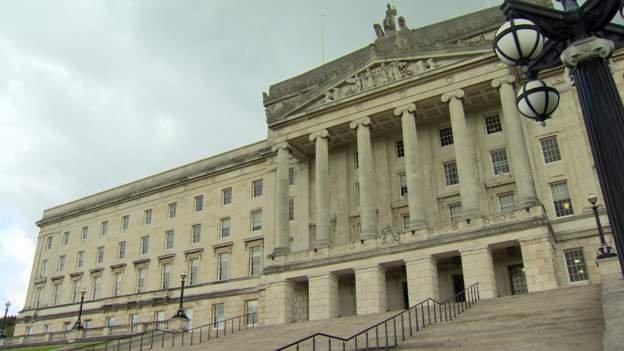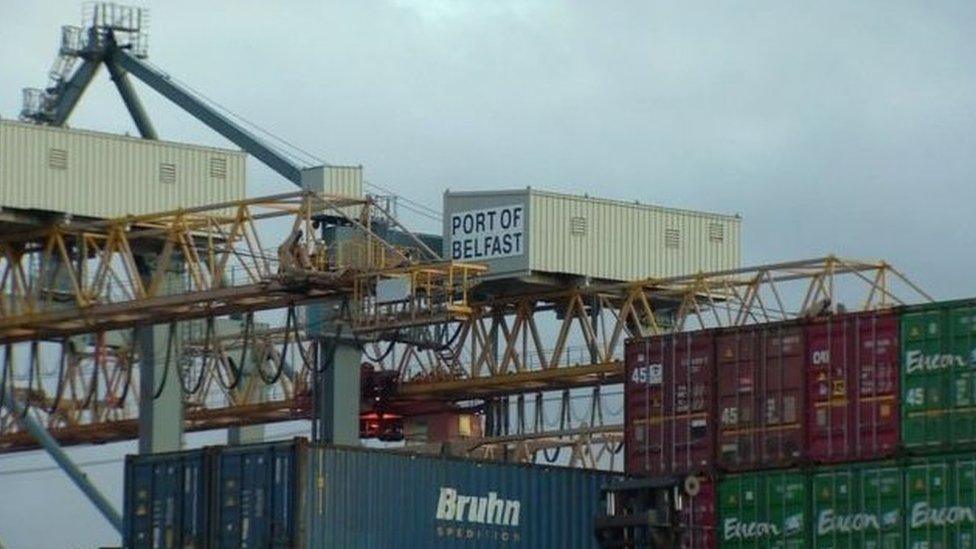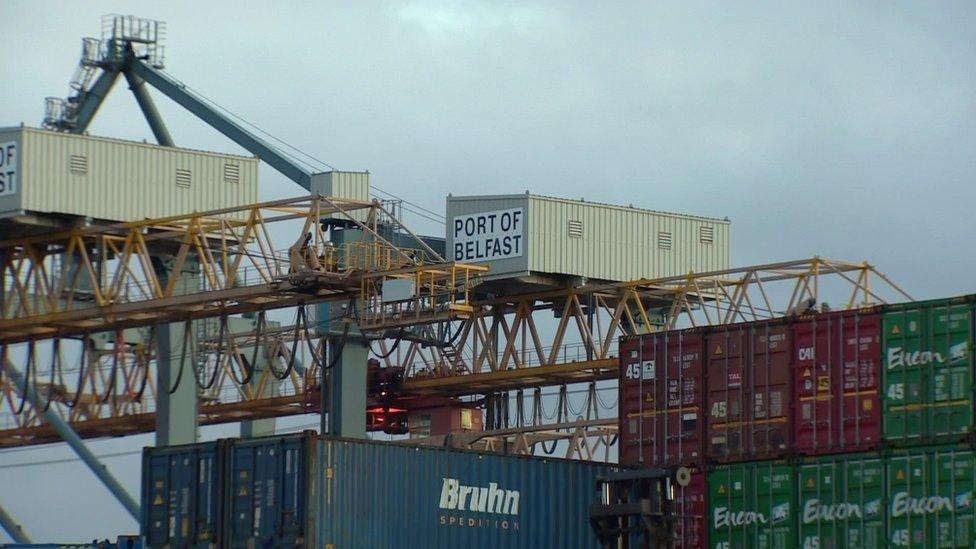Brexit: NI Assembly votes to extend transition period
- Published

The motion was opposed by unionist parties at Stormont
The Northern Ireland Assembly has voted in favour of extending the Brexit transition period.
The transition is due to end on 1 January and a new "trade border" will begin operating between Northern Ireland and the rest of the UK.
The UK government can request a transition extension, but has said it will not do so.
The assembly vote is not binding on the Northern Ireland Executive or the UK Government.
The multi-party Executive has, so far, been unable to reach a position on extending the transition but will reconsider the issue in two weeks time.
The Assembly motion for extension was backed by nationalists, the Alliance party, greens and socialists but opposed by unionists.
That meant it passed by 50 votes to 38.
The motion was proposed by SDLP MLA Matthew O'Toole who told the assembly it was "mad and dangerous" not to extend given the current economic circumstances.
He said: "It is especially dangerous because we know how close we came, in recent weeks, to serious disruption to supply chains across these islands.
"If we end this year with no trade deal and no extension to the transition, we could face the very real prospect of significant disruption to supply chains, not just between Calais and Dover but between Holyhead and Dublin - a route that is critical to the Northern Ireland market - and at Belfast and Larne."

There will be new checks for some goods entering NI from the rest of the UK after 1 January
Speaking against the motion, the DUP's Mervyn Storey said an extension would be counterproductive.
"An extension to the transition period would prevent us from taking the radical steps needed to rebuild the post-Covid-19 economy because the United Kingdom would continue to be bound by EU rules and unable to influence them."
At the end of transition period, Northern Ireland will continue to follow EU rules on agricultural and manufactured goods, while the rest of the UK will not.
Additionally, the whole of the UK will leave the EU's customs union, but Northern Ireland will continue to enforce the EU's customs code at its ports.
This will mean some new processes and checks for goods entering Northern Ireland from the rest of the UK.
The UK government has confirmed that will need expanded infrastructure at Northern Ireland's ports to carry out checks on animals and food products.
It is generally aiming for a "light-touch" approach to new checks and processes, though the detail will all have to be agreed with the EU.
- Published13 May 2020
